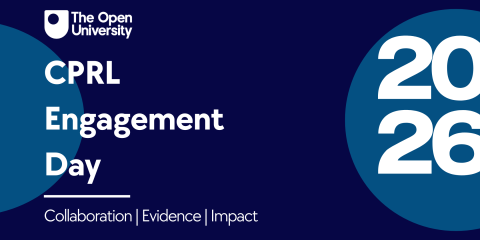3.18 Research into practice and practice into research? Exploring the role and impact of CPRL in supporting and mobilising the use of research evidence into policing and academic practice
Academic team: Dr Nicky Miller, Melanie Wiffin (British Transport Police), Debbie Kerridge (Cambridgeshire Constabulary)
Policing partners: All members
Status: Complete
In recent years policing has seen an increase in evidence-based practice and with it the pressure to work in partnership with academics to develop research to inform their practice and decision-making, often driven by a need to demonstrate value and effectiveness (Sherman, 2013; Telep and Lum, 2014; Lumsden and Goode, 2016). But the provision of research evidence alone is not enough to change behaviour and practice (Lavis et al, 2003; Langer et al, 2016). Indeed, it has long been recognised across many sectors that there is a gap between the production of research and its implementation into practice, sometimes referred to as the ‘Knowing-Doing’ gap (e.g. Pfeffer and Sutton, 2000) or the ‘Research-Practice’ gap.
This research aims to more fully understand how to identify and meet the challenges of ensuring that good research is considered and used by policing. There is a ‘research-practice’ gap in policing that we struggle as both academics and practitioners to overcome. The first phase of the research will provide the empirical context to understand the policing contexts where research evidence is/not used effectively. This will be achieved by establishing baseline understanding and organisational receptiveness to research-informed practice for members of CPRL, identifying the variety of individual and organisational factors that impede the use and implementation of research. Furthermore, it will map the current strategies and interventions used to disseminate and mobilise research into policing practice used by a sample of member forces.
Phase two of the research will then be given to designing and testing the effectiveness of different knowledge mobilisation methods and interventions and understand their implications in terms of costs and resources. Taking this approach will enable clearer statements to be made about the contexts, interventions and strategies likely to be most successful in transferring research evidence into policing.
Outputs
| Title | Outputs type | Lead academic | Year |
|---|---|---|---|
| Bridging the research-practice gap in policing | Conference presentation | Miller, N | 2023 |
| Mind the Gap: Understanding the research-practice gap in policing | Conference presentation | Miller, N | 2022 |
| Research into practice and practice into research? | Poster | Miller, N | 2019 |
News
What does the next decade of evidence-based policing look like? Join us for the CPRL Engagement Day on 21 January 2026
This event provides a collaborative and welcoming environment for shared practice, reflection, and strategic direction-setting. Together, we will explore how our partnership can drive forward the next generation of research, innovation, and professional learning across UK policing.
